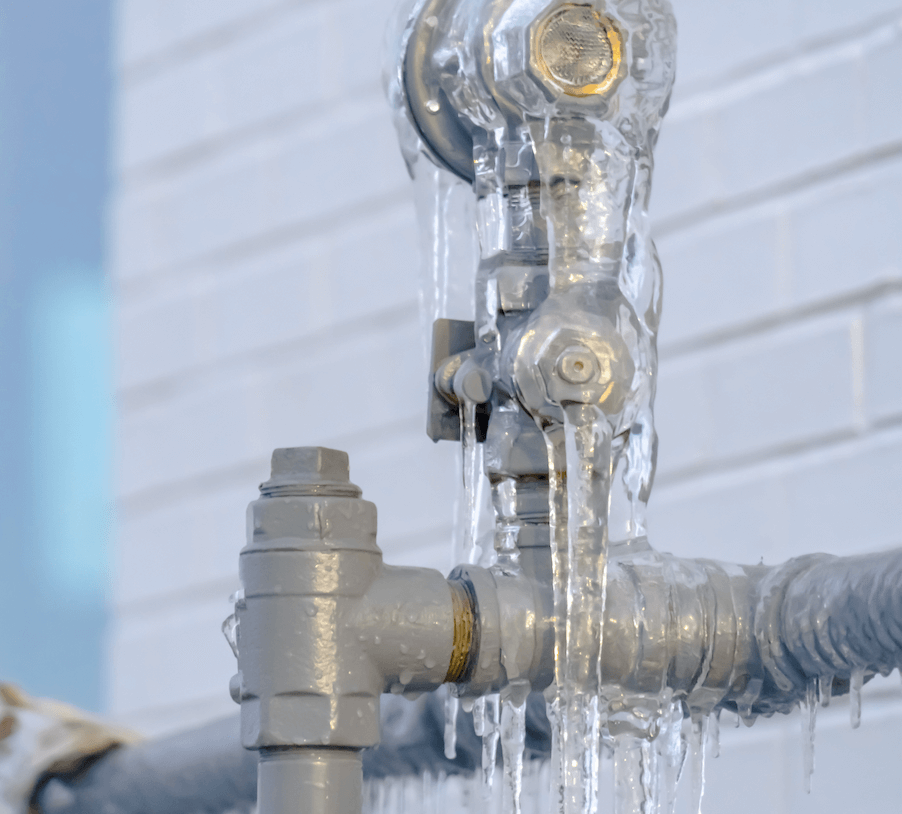Tips for Preventing Frozen Pipes in Winter: Expert Tips
Tips for Preventing Frozen Pipes in Winter: Expert Tips
Blog Article
The article author is making a few great annotation on the subject of 6 Ways to Prevent Frozen Pipes in general in this article underneath.

Winter can ruin your plumbing, especially by freezing pipes. Right here's how to stop it from taking place and what to do if it does.
Introduction
As temperatures decline, the danger of icy pipelines boosts, potentially leading to pricey repairs and water damages. Comprehending just how to prevent icy pipes is crucial for homeowners in cool environments.
Prevention Tips
Insulating susceptible pipes
Wrap pipelines in insulation sleeves or make use of heat tape to safeguard them from freezing temperatures. Concentrate on pipelines in unheated or external areas of the home.
Heating methods
Maintain indoor areas appropriately heated up, especially areas with pipes. Open cabinet doors to allow cozy air to distribute around pipes under sinks.
Just how to determine icy pipelines
Try to find lowered water circulation from taps, unusual odors or noises from pipes, and noticeable frost on exposed pipelines.
Long-Term Solutions
Structural adjustments
Think about rerouting pipes far from exterior wall surfaces or unheated locations. Include extra insulation to attic rooms, basements, and crawl spaces.
Upgrading insulation
Purchase top quality insulation for pipes, attics, and walls. Proper insulation aids maintain regular temperatures and reduces the danger of frozen pipelines.
Securing Outside Plumbing
Garden hose pipes and outside taps
Detach and drain yard hoses before wintertime. Set up frost-proof faucets or cover exterior taps with protected caps.
Understanding Icy Pipelines
What causes pipelines to freeze?
Pipes ice up when subjected to temperatures listed below 32 ° F (0 ° C) for extended periods. As water inside the pipelines freezes, it expands, putting pressure on the pipe wall surfaces and possibly triggering them to break.
Risks and damages
Icy pipelines can result in supply of water disturbances, property damage, and pricey repair services. Ruptured pipelines can flood homes and trigger extensive architectural damage.
Indicators of Frozen Pipes
Recognizing icy pipelines early can avoid them from rupturing.
What to Do If Your Pipelines Freeze
Immediate actions to take
If you presume icy pipes, keep taps open to ease stress as the ice melts. Utilize a hairdryer or towels taken in hot water to thaw pipes slowly.
Final thought
Preventing icy pipelines requires positive procedures and fast feedbacks. By recognizing the causes, indications, and safety nets, homeowners can shield their plumbing throughout cold weather.
5 Ways to Prevent Frozen Pipes
Drain Outdoor Faucets and Disconnect Hoses
First, close the shut-off valve that controls the flow of water in the pipe to your outdoor faucet. Then, head outside to disconnect and drain your hose and open the outdoor faucet to allow the water to completely drain out of the line. Turn off the faucet when done. Finally, head back to the shut-off valve and drain the remaining water inside the pipe into a bucket or container. Additionally, if you have a home irrigation system, you should consider hiring an expert to clear the system of water each year.
Insulate Pipes
One of the best and most cost-effective methods for preventing frozen water pipes is to wrap your pipes with insulation. This is especially important for areas in your home that aren’t exposed to heat, such as an attic. We suggest using foam sleeves, which can typically be found at your local hardware store.
Keep Heat Running at 65
Your pipes are located inside your walls, and the temperature there is much colder than the rest of the house. To prevent your pipes from freezing, The Insurance Information Institute suggests that you keep your home heated to at least 65 degrees, even when traveling. You may want to invest in smart devices that can keep an eye on the temperature in your home while you’re away.
Leave Water Dripping
Moving water — even a small trickle — can prevent ice from forming inside your pipes. When freezing temps are imminent, start a drip of water from all faucets that serve exposed pipes. Leaving a few faucets running will also help relieve pressure inside the pipes and help prevent a rupture if the water inside freezes.
Open Cupboard Doors
Warm your kitchen and bathroom pipes by opening cupboards and vanities. You should also leave your interior doors ajar to help warm air circulate evenly throughout your home.

Do you really like more info about How to Prevent Your Pipes From Freezing? Create feedback down below. We'd be glad to see your ideas about this page. Hoping that you visit us again in the near future. Sharing is caring. You never know, you may very well be doing someone a favor. We appreciate your readership.
Book Now! Report this page